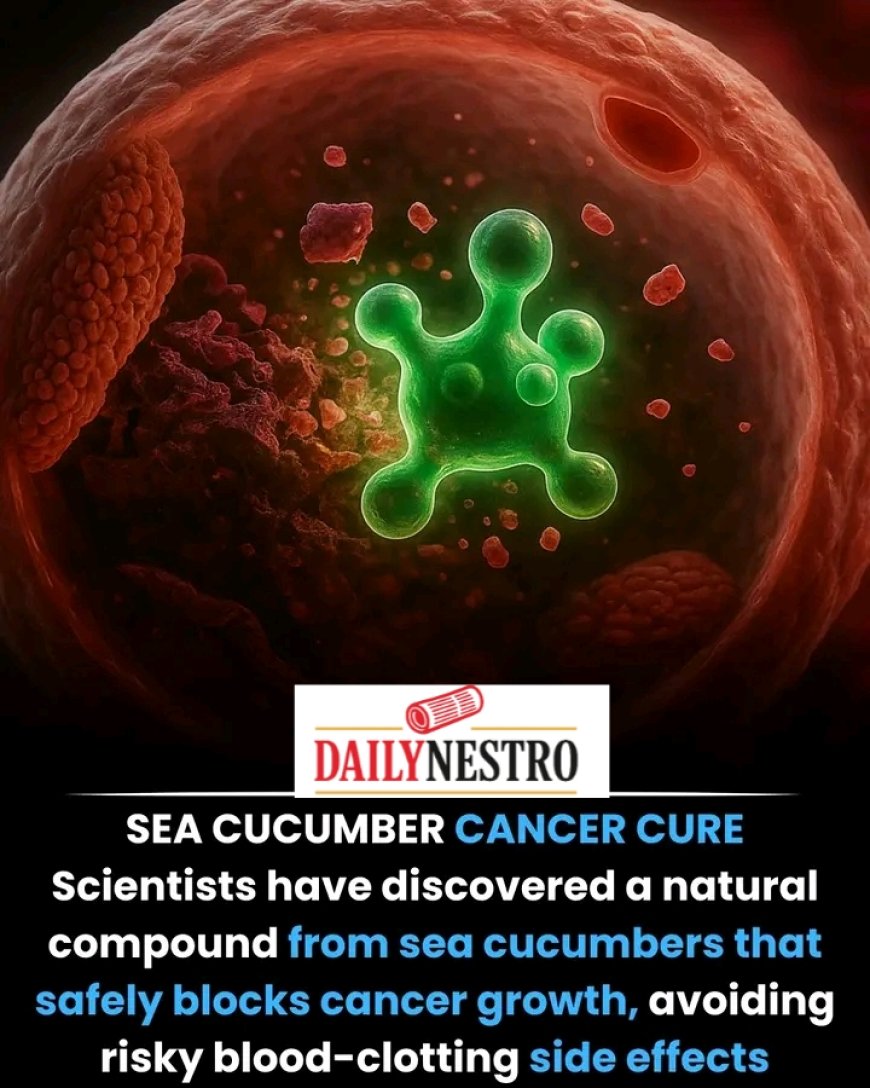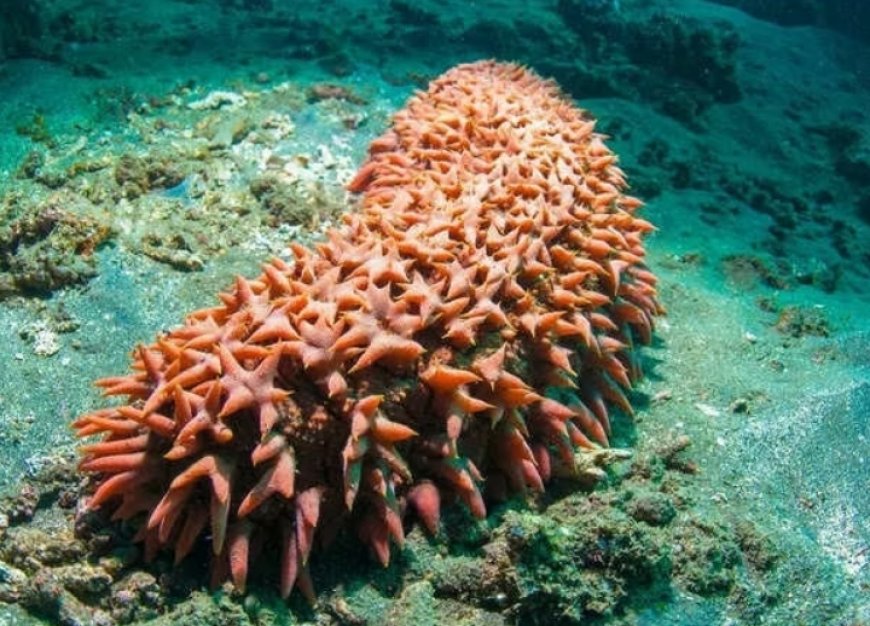Sea Cucumbers and Cancer: A Promising Natural Discovery from the Ocean
Sea Cucumbers and Cancer: A Promising Natural Discovery from the Ocean

Sea Cucumbers and Cancer: A Promising Natural Discovery from the Ocean.
In the search for safer and more effective cancer treatments, scientists are now turning to an unexpected source—the sea cucumber. This marine animal, long used in traditional Asian medicine, is now showing strong potential in modern scientific research for its ability to combat cancer.
Recent studies conducted by marine biologists and medical researchers have revealed that sea cucumbers contain a natural compound capable of slowing the growth of cancer cells. What makes this compound especially exciting is that it appears to do so without causing harmful side effects like blood clotting—something many current cancer treatments struggle to avoid.
This discovery marks a significant step forward in the development of natural, targeted cancer therapies and highlights the vast, untapped potential of marine life in medical research.

What Are Sea Cucumbers?
Sea cucumbers are soft-bodied, bottom-dwelling marine animals found on ocean floors around the world. Though they may look unassuming, these creatures are packed with bioactive compounds that have attracted the attention of both traditional healers and modern scientists.
In many Asian cultures, particularly in China and Southeast Asia, sea cucumbers have been used for centuries as a traditional remedy believed to improve vitality, support joint health, and promote healing. They are often dried and used in soups or taken as health supplements.
Now, the scientific community is catching up—investigating the medicinal properties of sea cucumbers in controlled laboratory settings. And the results are turning heads.
A Natural Compound That Targets Tumor Cells
What makes this discovery particularly promising is the compound’s selective nature. In lab tests, researchers observed that the sea cucumber extract specifically blocked the growth of cancerous cells, while leaving healthy cells largely unaffected. This is a major advantage over conventional chemotherapy, which often attacks all rapidly dividing cells—healthy or not—leading to side effects like hair loss, fatigue, and compromised immune function.
Even more impressive, the compound does not appear to cause the dangerous blood-clotting issues that are a known risk with some current anti-cancer drugs. This could make it a safer alternative for patients, particularly those already at risk for cardiovascular complications.
While clinical trials in humans are still needed to confirm these effects, early results from laboratory research are encouraging.
The Growing Role of Marine Medicine
This finding adds to a growing list of marine organisms being explored for their medical potential. The ocean is home to millions of species, many of which have developed unique chemical defenses and healing mechanisms as a result of evolving in extreme, competitive environments.
Some of the most groundbreaking drugs today have originated from marine life. For instance:
▫️Trabectedin a chemotherapy drug, was derived from a sea squirt.
▫️Ziconotide a powerful painkiller, comes from cone snail venom.
▫️Ara-C discovered in a Caribbean sponge.
Sea cucumbers now join this list of promising marine-derived medical resources, suggesting that the sea may hold key answers to some of humanity’s toughest health challenges.
It’s important to note that while this discovery is promising, the journey from laboratory research to an approved, commercially available cancer treatment is a long one. Clinical trials must be conducted to test the safety, dosage, and effectiveness of the compound in humans. This process can take years, but it is a vital step in ensuring that any new treatment is both safe and effective.
Still, this breakthrough shines a light on the value of exploring natural compounds—especially those found in marine environments—as part of the future of medicine.
Why Natural Therapies Matter
There is a growing demand for natural and holistic approaches to health, especially among patients seeking alternatives or supplements to traditional pharmaceuticals. Natural therapies, when backed by science, offer a unique balance—combining the healing power of nature with evidence-based results.
The sea cucumber compound could one day represent a new generation of cancer treatment: one that is gentler on the body, naturally derived, and scientifically validated.
The discovery of a cancer-fighting compound in sea cucumbers is more than just an exciting scientific headline—it’s a reminder of how much we still have to learn from the natural world. As research continues, the ocean may reveal more than just beauty and biodiversity—it may also hold the cures to diseases we’ve long struggled to treat.
Whether you’re passionate about natural medicine, fascinated by marine science, or simply hopeful for new cancer treatments, this finding offers a glimpse of what's possible when ancient remedies meet cutting-edge research.
The sources: ecancer.org







